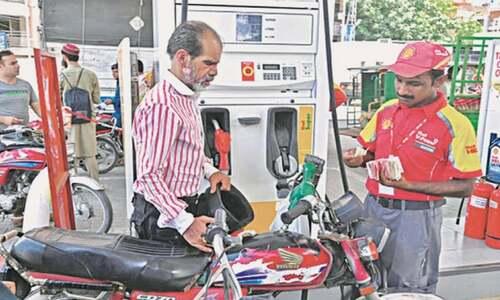CONCERNS were raised during a Supreme Court hearing on Friday about ‘no-go’ areas inaccessible to law enforcement agencies in Karachi. Such a situation has prevailed for some time, with areas such as Lyari largely controlled by criminal gangs off limits to the police. Elsewhere, whenever ethnic tensions boil over, certain neighbourhoods become inaccessible to members of ‘rival’ communities. Yet another matter of concern is that religious militants are steadily gaining ground in the outskirts of the metropolis where they have set up parallel justice systems. So fears that the police are shut out of chunks of the city are not unfounded. That lawlessness is a part of life in this teeming metropolis was illustrated by the killing of a school principal in Baldia yesterday — a day after police officials told the apex court the force lacked the will to tackle crime and terrorism in Karachi. Hence there can be no disagreement with the Supreme Court’s observation that all no-go areas must be abolished. How this is to be achieved is a much trickier question.
True, the solution lies in empowering the police to take action against criminals, but so far this has proved elusive. It is no secret that criminal elements enjoy political patronage in the city. In fact whenever operations are launched or suspected killers, affiliated with certain parties, rounded up it is not unusual to find the police confronted with political pressure to back off. The police are indeed corrupt and inefficient. But can they realistically be expected to deliver when their initiatives are thwarted by political elements?
The police are in a position to deliver better than even the paramilitary Rangers as their knowledge of Karachi’s communities and localities is extensive. But for this to happen, political will is necessary to counter crime and terrorism as it is to depoliticise and empower the force. A neutral, apolitical and professional police force, mandated with the task of upholding the law under all circumstances, is a prerequisite to rectifying Karachi’s descent into chaos.










































